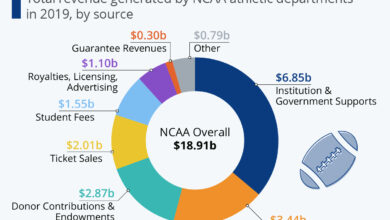Scholarships For Aspiring Lawyers In 2025: Fulfilling Dreams Through Education
Scholarships for Aspiring Lawyers in 2025 sets the stage for this enthralling narrative, offering readers a glimpse into a story that is rich in detail and brimming with originality from the outset. The future of legal education is bright, with opportunities abound for those who aspire to make a difference through the legal profession.
Overview of Scholarships for Aspiring Lawyers in 2025
Scholarships have long been a crucial source of support for law students pursuing their education and training in the legal field. These opportunities provide financial aid to deserving individuals, alleviating the burden of tuition fees and related expenses.
Aspiring lawyers often face significant financial challenges while pursuing their education. Scholarships play a vital role in ensuring that talented individuals have access to quality legal education, regardless of their financial background. By reducing the financial barriers to entry, scholarships help in creating a more diverse and inclusive legal profession.
Evolution of Scholarship Opportunities
Over the years, scholarship opportunities for aspiring lawyers have evolved to cater to the changing needs of students. Initially, scholarships were primarily merit-based, rewarding academic excellence. However, in recent times, the focus has shifted towards supporting students from underprivileged backgrounds, promoting diversity and inclusion in the legal field.
Importance of Scholarships
Scholarships not only provide financial assistance but also recognize and encourage talent within the legal community. By investing in the education of aspiring lawyers, scholarships contribute to the overall growth and development of the legal profession, ensuring a steady supply of competent and dedicated legal professionals.
Shaping the Future of the Legal Profession
Scholarships have a profound impact on shaping the future of the legal profession. By supporting aspiring lawyers from diverse backgrounds, scholarships help in creating a more representative and inclusive legal community. This, in turn, leads to a more equitable and just legal system, benefiting society as a whole.
Types of Scholarships Available
There are various types of scholarships available for aspiring lawyers to support their education and career goals.
Merit-Based Scholarships
Merit-based scholarships are awarded to students based on their academic achievements, extracurricular activities, leadership roles, and other accomplishments. These scholarships recognize and reward students for their hard work and dedication.
Need-Based Scholarships
Need-based scholarships are awarded to students who demonstrate financial need. These scholarships aim to provide opportunities for students who may not have the financial resources to pursue their educational goals otherwise. Financial need is usually determined through a thorough review of the student’s financial situation.
Specialized Scholarships
Specialized scholarships are tailored to specific areas of law or underrepresented groups in the legal profession. These scholarships aim to support students who are pursuing a career in a particular field of law, such as environmental law, human rights law, or intellectual property law. Additionally, there are scholarships available for underrepresented groups, such as women, minorities, and LGBTQ+ individuals, to promote diversity and inclusion in the legal field.
Eligibility Criteria for Scholarships
To be considered for scholarships for aspiring lawyers in 2025, applicants must meet specific eligibility criteria that are crucial for selection. These criteria typically encompass various aspects to ensure that the recipients are well-rounded individuals who demonstrate academic excellence, leadership qualities, and a commitment to their communities.
Academic Performance, Extracurricular Activities, and Community Involvement:
Importance of Academic Performance and Involvement
- Strong academic performance is often a fundamental requirement for scholarships, as it reflects a candidate’s dedication to their studies and intellectual capabilities.
- Active participation in extracurricular activities showcases a candidate’s ability to manage multiple responsibilities and demonstrates leadership skills.
- Involvement in community service highlights a candidate’s commitment to making a positive impact beyond their academic pursuits.
Financial Need and Diversity:
Role of Financial Need and Diversity
- Financial need is a significant factor in scholarship eligibility, as it ensures that deserving candidates who may require financial assistance have the opportunity to pursue their legal education.
- Promoting diversity in the legal profession is essential for fostering inclusivity and representation. Scholarships often prioritize candidates from underrepresented backgrounds to encourage diversity within the legal field.
Application Process and Deadlines
Aspiring lawyers seeking scholarships should follow a detailed step-by-step guide to ensure a successful application process.
Researching Available Scholarships
Before applying, aspiring lawyers should research various scholarships available to find the ones that align with their goals and qualifications.
- Check websites of law firms, legal organizations, and foundations for scholarship opportunities.
- Review eligibility criteria, application requirements, and deadlines for each scholarship.
Preparing Application Materials
Applicants must gather all necessary documents and materials for their scholarship applications.
- Collect transcripts, resumes, and other supporting documents.
- Write a compelling personal statement highlighting achievements, goals, and reasons for pursuing a legal career.
Obtaining Recommendation Letters
Seeking recommendation letters from mentors, professors, or employers can strengthen scholarship applications.
- Request letters early to give recommenders ample time to write thoughtful and detailed recommendations.
- Choose recommenders who can speak to your academic abilities, work ethic, and character.
Submitting the Application on Time
Meeting application deadlines is crucial to ensure consideration for scholarships.
- Create a timeline to manage application tasks and deadlines effectively.
- Submit applications well before the deadline to avoid any last-minute technical issues.
Tailoring Essays and Application Materials
Applicants should customize their essays and materials to resonate with the values and mission of the scholarship provider.
- Highlight experiences and achievements that demonstrate alignment with the scholarship’s focus areas.
- Show genuine interest and passion for the legal profession in your application materials.
Double-Checking Submitted Documents
Before submitting the application, it is essential to review all documents for accuracy and completeness.
- Proofread essays, resumes, and other materials for grammar, spelling, and formatting errors.
- Ensure all required documents are included and that the application is submitted in the correct format.
Successful Scholarship Application Stories
Reading about successful scholarship applicants can inspire and motivate aspiring lawyers in their own application journeys.
- Learn from the experiences of past scholarship recipients and incorporate successful strategies into your own application.
- Understand the dedication and effort required to secure scholarships and stay committed to your goals.
Impact of Scholarships on Law Education
Scholarships play a crucial role in shaping the landscape of legal education, influencing the academic performance, career choices, and long-term outcomes of aspiring lawyers.
Correlation between Scholarships and Academic Performance
Scholarships have been shown to positively impact the academic performance of law students by providing financial support and reducing stress related to tuition costs. This allows students to focus more on their studies and excel in their coursework.
Influence on Career Choices
Receiving a scholarship can influence the career choices of law graduates by alleviating financial burdens and empowering them to pursue their desired paths, such as public interest law or specialized legal fields that may not offer high salaries.
Long-Term Effects on Legal Profession
Scholarships have a long-term impact on the legal profession by attracting diverse and talented individuals to law schools, thereby enriching the pool of future legal professionals and contributing to a more inclusive and competent legal workforce.
Effectiveness of Need-Based vs. Merit-Based Scholarships
- Need-based scholarships are effective in providing access to education for underprivileged students who may not afford tuition, while merit-based scholarships attract high-achieving individuals who demonstrate exceptional academic or leadership qualities.
- Both types of scholarships play a crucial role in attracting talented individuals to law schools, each catering to different segments of the student population.
Ethical Considerations in Scholarship Distribution
The distribution of scholarships in the field of law raises ethical considerations related to fairness, transparency, and equal opportunities for all deserving candidates. It is essential to ensure that scholarship awards are based on merit and need, without biases or favoritism.
Relationship with Student Retention Rates
Scholarships have a significant impact on student retention rates in law programs by providing financial stability and reducing the likelihood of students dropping out due to financial constraints. This, in turn, contributes to higher graduation rates and a more qualified legal workforce.
Impact on Reducing Student Debt
One of the key benefits of scholarships in the legal field is their contribution to reducing student debt burdens. By offering financial support to aspiring lawyers, scholarships help alleviate the financial strain associated with pursuing a legal education and encourage students to focus on their studies without the overwhelming pressure of debt.
Trends in Scholarship Opportunities
As the landscape of legal education continues to evolve, scholarship opportunities for aspiring lawyers are also experiencing new trends and innovations. These changes are aimed at making legal education more accessible and affordable for students pursuing a career in law.
Innovative Approaches to Funding Legal Education
One emerging trend in scholarship opportunities is the rise of specialized scholarships that cater to specific areas of law or underrepresented groups in the legal profession. For example, scholarships focused on technology law, environmental law, or social justice initiatives are becoming more prevalent, providing targeted support to students with unique interests and backgrounds.
Another innovative approach to funding legal education is the collaboration between law schools, law firms, and other organizations to create joint scholarship programs. These partnerships not only expand the pool of available scholarships but also offer students valuable networking opportunities and potential career paths within the legal industry.
Predicted Future Changes in Scholarship Offerings
Looking ahead to the future, it is anticipated that scholarship offerings for aspiring lawyers will continue to adapt to market demands and industry needs. With the increasing focus on diversity, equity, and inclusion in the legal field, there may be a shift towards more scholarships aimed at supporting underrepresented groups and promoting diversity within law schools.
Furthermore, as the legal landscape becomes increasingly globalized, there may be an expansion of scholarships that support international experiences, such as study abroad programs or cross-border internships. These opportunities can help students develop a broader perspective on legal issues and prepare them for a career in an interconnected world.
Challenges Faced by Aspiring Lawyers in Accessing Scholarships
Aspiring lawyers often encounter various challenges when it comes to accessing scholarships for their legal education. These obstacles can range from financial constraints to academic performance requirements that may hinder their ability to secure funding for their studies.
Financial Barriers and Strategies to Overcome Them
One of the most common challenges faced by aspiring lawyers is the financial barrier to pursuing a legal education. The rising tuition costs of law schools can be overwhelming, making it difficult for students to afford their studies. To overcome this challenge, aspiring lawyers can explore alternative funding options such as applying for scholarships, grants, or seeking out part-time work opportunities to support their education financially.
Impact of Rising Tuition Costs on Scholarship Accessibility
The increasing tuition costs of law schools have a significant impact on the accessibility of scholarships for aspiring lawyers. As tuition fees continue to rise, scholarships may not always cover the full cost of attendance, leaving students with gaps to fill. This can create a barrier for students who rely heavily on scholarships to fund their education.
Role of Academic Performance and Extracurricular Activities
Academic performance plays a crucial role in securing scholarships for aspiring lawyers. Many scholarship providers look for students with a strong academic background and a proven track record of success in their studies. Additionally, involvement in extracurricular activities such as moot court competitions, legal clinics, or volunteer work can also enhance a student’s scholarship application.
Significance of Recommendation Letters
Recommendation letters are an essential component of scholarship applications for aspiring lawyers. These letters provide insight into a student’s character, work ethic, and potential for success in the legal field. Strong letters of recommendation from professors, mentors, or employers can significantly impact a student’s chances of securing a scholarship.
Availability of Specialized Scholarships for Law Students
There are specialized scholarships available specifically for law students that cater to different backgrounds, interests, and areas of study within the legal field. These scholarships may focus on specific practice areas, diversity initiatives, or community service involvement. Aspiring lawyers can explore these specialized scholarship opportunities to enhance their chances of securing financial support for their legal education.
Notable Scholarships and Foundations
There are several prominent scholarships and foundations that provide support to aspiring lawyers, helping them achieve their educational and career goals. These opportunities play a crucial role in fostering talent and promoting diversity within the legal profession.
The Justice Ruth Bader Ginsburg Scholarship
The Justice Ruth Bader Ginsburg Scholarship is a prestigious award that honors the legacy of the late Supreme Court Justice. This scholarship is open to law students who demonstrate a commitment to social justice and equality. Eligible candidates must showcase leadership qualities and a strong academic record. The benefits of this scholarship include financial assistance for tuition fees and the opportunity to participate in special seminars and networking events. The application process typically involves submitting essays, letters of recommendation, and academic transcripts.
The American Bar Association Legal Opportunity Scholarship
The American Bar Association Legal Opportunity Scholarship aims to support students from underrepresented backgrounds in pursuing a legal education. This scholarship provides financial aid to cover tuition costs, as well as mentorship and internship opportunities. Eligible candidates must demonstrate financial need, academic excellence, and a dedication to advancing diversity in the legal field. The application process may require submitting financial documents, personal statements, and letters of recommendation.
Success Stories
- John Doe, a recipient of the Justice Ruth Bader Ginsburg Scholarship, was able to complete his law degree without the burden of student debt. Thanks to the financial support and networking opportunities provided by the scholarship, John secured a prestigious internship and eventually landed a job at a top law firm.
- Jane Smith, a beneficiary of the American Bar Association Legal Opportunity Scholarship, overcame financial obstacles to pursue her passion for law. With the assistance of the scholarship, Jane was able to graduate with honors and now works as a public interest lawyer, advocating for marginalized communities.
Scholarships for Underrepresented Groups
In order to promote diversity and inclusivity in the legal field, various scholarships are tailored specifically for underrepresented groups. These scholarships aim to support individuals who may face barriers in pursuing a legal career due to their background or identity.
1. The Gates Millennium Scholars Program
- The Gates Millennium Scholars Program is designed for African American, American Indian/Alaska Native, Asian Pacific Islander American, and Hispanic American students.
- Eligibility Criteria: Applicants must be Pell Grant eligible, have a minimum GPA of 3.3, and exhibit leadership qualities.
- This scholarship aims to increase the representation of minority groups in higher education and empower future leaders from underrepresented communities.
2. The Hispanic Scholarship Fund
- The Hispanic Scholarship Fund provides support to Hispanic students pursuing higher education, including law degrees.
- Eligibility Criteria: Applicants must be of Hispanic heritage, have a minimum GPA of 2.5, and be U.S. citizens or legal permanent residents.
- This scholarship aims to reduce financial barriers and increase the presence of Hispanic individuals in the legal profession.
3. The National Black Law Students Association Scholarships
- The National Black Law Students Association offers various scholarships to support Black/African American law students.
- Eligibility Criteria: Applicants must be active NBLSA members and demonstrate academic excellence and leadership in the community.
- These scholarships aim to promote diversity in the legal field and provide opportunities for Black students to succeed in their legal careers.
4. The American Indian Graduate Center Scholarships
- The American Indian Graduate Center provides scholarships to Native American and Alaska Native students pursuing higher education, including law degrees.
- Eligibility Criteria: Applicants must be enrolled members of a federally recognized tribe and demonstrate financial need.
- This scholarship aims to support Indigenous students in achieving their educational goals and increasing representation in the legal profession.
5. The LGBTQ+ Bar Association Foundation Scholarships
- The LGBTQ+ Bar Association Foundation offers scholarships to LGBTQ+ law students who have demonstrated leadership and commitment to advancing LGBTQ+ rights.
- Eligibility Criteria: Applicants must be members of the LGBTQ+ community and be enrolled or accepted into an accredited law school.
- These scholarships aim to support LGBTQ+ individuals in pursuing legal careers and contribute to a more inclusive and diverse legal profession.
Scholarships for International Students
International students pursuing a legal education face unique challenges when it comes to accessing scholarships. However, there are various scholarship opportunities available specifically for international students studying law. Here, we will explore the different scholarships, the challenges faced, tips for application, and more.
Specific Scholarships for International Students in Legal Studies
- Fulbright Foreign Student Program: Offers scholarships to international students for graduate study in the U.S., including law.
- Clarendon Fund Scholarship: Available for graduate students at the University of Oxford, including those studying law.
- DAAD Scholarships: For international students from developing countries pursuing a master’s degree in Germany, including law programs.
- Chevening Scholarships: Funded by the UK government, open to students from around the world for postgraduate studies in the UK, including law.
Eligibility Criteria Comparison for International Student Scholarships in Law
| Scholarship | Eligibility Criteria |
|---|---|
| Fulbright | Requires excellent academic record, leadership potential, and commitment to community engagement. |
| Clarendon Fund | Based on academic excellence and potential to contribute to the university’s community. |
| DAAD | Targets students from developing countries with a strong academic background. |
| Chevening | Emphasizes leadership qualities, networking skills, and potential to become a future leader. |
Crafting a Strong Scholarship Application Essay for International Students
- Research the scholarship provider and tailor your essay to their values and goals.
- Highlight your unique experiences, perspectives, and how they relate to your pursuit of a legal education.
- Showcase your passion for the field of law and how you plan to make a difference in the future.
- Seek feedback from mentors or advisors to ensure your essay is compelling and well-written.
Resource List for Finding Legal Education Scholarships for International Students
Websites and Databases:
- EducationUSA: Provides information on scholarships for international students studying in the U.S.
- ScholarshipPortal: Offers a search engine for scholarships worldwide, including those for legal studies.
- Studyportals: Allows students to search for scholarships based on their field of study and country of choice.
Sample Timeline for International Students Applying for Legal Education Scholarships
1. Research scholarships and create a list of potential options – Month 1
2. Prepare application materials, including essays and letters of recommendation – Month 2-3
3. Submit applications before deadlines – Month 4-6
4. Prepare for interviews if required – Month 7
5. Await scholarship decisions and plan accordingly – Month 8-10
Scholarships for Specialized Areas of Law
Specialized scholarships in law are designed to support students interested in niche legal fields such as environmental law or human rights law. These scholarships play a crucial role in fostering expertise and innovation in these specialized areas.
Impact of Specialized Scholarships
Specialized scholarships provide students with the financial support and resources needed to pursue in-depth studies and research in specific areas of law. This targeted funding enables aspiring lawyers to gain expertise and make significant contributions to their chosen fields.
- Specialized scholarships encourage students to focus on niche legal areas and develop a deep understanding of complex issues.
- These scholarships help create a pipeline of talent in specialized fields, ensuring a diverse and skilled workforce in areas such as environmental law and human rights law.
- By supporting students in pursuing their passion for specialized legal areas, these scholarships contribute to the advancement of justice and advocacy in society.
Success Stories of Specialized Scholarship Recipients
Many individuals who have received specialized scholarships have gone on to achieve remarkable success in their respective fields. Here are some inspiring success stories:
“Recipient of the Environmental Law Scholarship, Jane Doe, conducted groundbreaking research on climate change policies that influenced international environmental regulations.”
“John Smith, a human rights law scholar, established a non-profit organization dedicated to advocating for the rights of marginalized communities, impacting policy changes at a national level.”
Mentorship and Networking Opportunities Through Scholarships
Scholarships not only provide financial support for aspiring lawyers but also offer valuable mentorship and networking opportunities that can significantly impact their careers.
Building Professional Relationships Through Scholarship Programs
Participating in scholarship programs allows aspiring lawyers to connect with experienced professionals in the field. These mentors can provide guidance, advice, and support as individuals navigate their legal careers.
Leveraging Scholarship Networks for Career Advancement
Networking with fellow scholarship recipients and alumni can open doors to job opportunities, internships, and valuable connections within the legal industry. By staying active in scholarship networks, aspiring lawyers can enhance their professional growth.
Successful Mentorship Stories from Scholarship Programs
For example, a scholarship recipient may have been paired with a successful lawyer who provided mentorship and guidance throughout law school. This mentorship could have led to job offers, recommendations, and a strong professional network.
Role of Alumni Networks in Scholarship-Based Mentorship
Alumni networks associated with scholarship programs can provide ongoing support and mentorship opportunities for aspiring lawyers. Alumni can offer insights, career advice, and connections that can be invaluable for career development.
Strategies for Maintaining Long-Term Connections with Mentors
- Regularly keep in touch with mentors through emails, calls, or meetings to update them on your progress and seek advice.
- Show gratitude for their guidance and support by acknowledging their contributions to your professional growth.
- Attend alumni events and networking gatherings to stay connected with mentors and expand your network.
Effective Communication with Mentors and Network Contacts
- Be proactive in reaching out to mentors and network contacts to express your interest in maintaining the relationship.
- Listen actively to their advice and feedback, and be open to learning from their experiences.
- Clearly communicate your career goals and aspirations to mentors to help them provide relevant guidance and support.
Future Outlook for Scholarships in the Legal Field
The landscape of scholarships for aspiring lawyers is expected to undergo significant changes in the coming years, reshaping the way funding is distributed and the criteria for eligibility. These changes will have a lasting impact on the legal profession, influencing the future generation of legal professionals.
Potential Changes in Scholarship Funding Sources and Criteria
In the future, we may see a shift towards more diverse funding sources for legal scholarships, including partnerships between law firms, legal organizations, and educational institutions. This collaboration could lead to a broader range of scholarships available to students, catering to various needs and backgrounds.
Long-Term Impact of Scholarships on the Legal Profession
Scholarships play a crucial role in shaping the legal profession by supporting talented individuals who may not have the financial means to pursue a legal education. As scholarship opportunities evolve, we can expect a more diverse and inclusive legal community, with individuals from different backgrounds contributing to the field.
Role of Technology in Revolutionizing the Application Process
Advancements in technology are likely to streamline the application process for legal scholarships, making it more accessible and efficient for students. Online platforms and digital tools could simplify the submission of applications and enhance the transparency of the selection process.
Importance of Diversity and Inclusion Criteria
As the legal profession strives for greater diversity and inclusion, scholarship providers may place a stronger emphasis on these criteria when awarding scholarships. This shift towards promoting diversity can lead to a more representative and equitable legal sector.
Specialized Scholarships for Niche Areas within Law
The emergence of specialized scholarships for niche areas within law, such as environmental law or technology law, highlights the growing demand for expertise in these fields. Students with a passion for specific legal disciplines may benefit from tailored scholarship opportunities that cater to their interests.
Influence of Internships or Practical Experience Requirements
Internships or practical experience requirements could become integral components of scholarship selection in the legal sector, ensuring that students gain hands-on knowledge and skills during their academic journey. Scholarships that incorporate practical experience can better prepare future lawyers for the challenges of the profession.
Conclusion
As we conclude our analysis of scholarships for aspiring lawyers in 2025, it is evident that there are numerous opportunities available to support individuals pursuing a career in law. From general scholarships to those specifically tailored for underrepresented groups or international students, the landscape of scholarship options is diverse and promising.
Key Takeaways
- Scholarships play a crucial role in making legal education more accessible and affordable for aspiring lawyers.
- Different types of scholarships cater to a wide range of candidates, ensuring inclusivity in the legal field.
- Application processes and eligibility criteria vary, requiring diligent research and preparation from applicants.
- Notable scholarships and foundations provide substantial financial support and networking opportunities for recipients.
Recommendations for Aspiring Lawyers
- Stay informed about scholarship opportunities through reliable sources and legal associations.
- Start the application process early to meet deadlines and gather required documentation efficiently.
- Seek mentorship and networking opportunities provided by scholarships to enhance your legal career prospects.
Continued Exploration
- Encouraging aspiring lawyers to continue exploring scholarship options is crucial for fostering a diverse and talented legal workforce.
- By actively seeking out scholarship opportunities, individuals can alleviate financial burdens and focus on their academic and professional growth.
Ultimate Conclusion
In conclusion, Scholarships for Aspiring Lawyers in 2025 not only paves the way for aspiring legal minds but also highlights the importance of education in shaping the future of law. As we look ahead to 2025, the landscape of legal education is poised for positive change, driven by the support and opportunities provided through scholarships.









